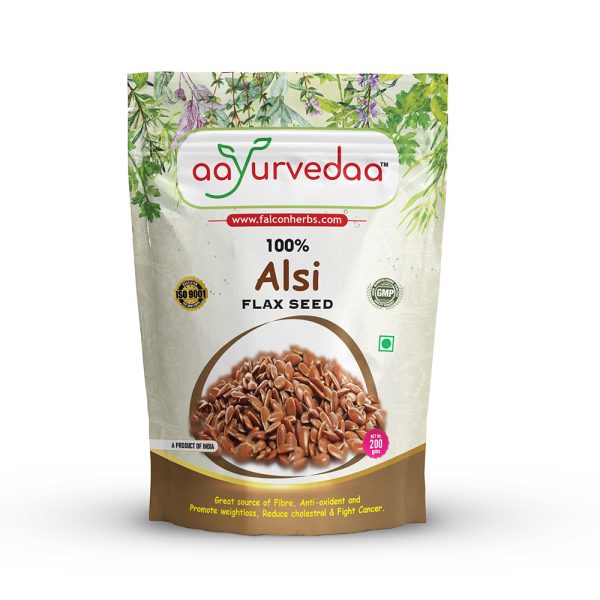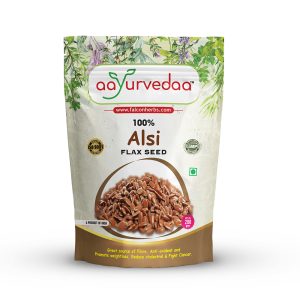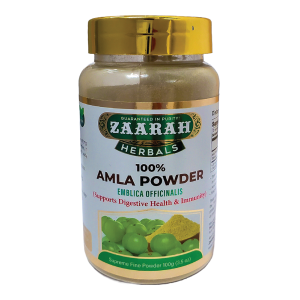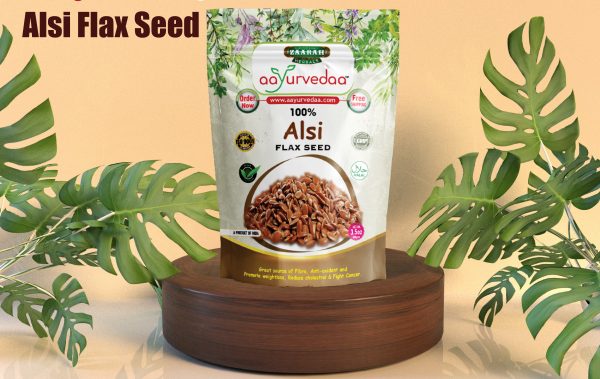No products in the cart.
How Alsi (Flax Seeds) Can Transform Your Health: Top 10 Reasons to Start Today
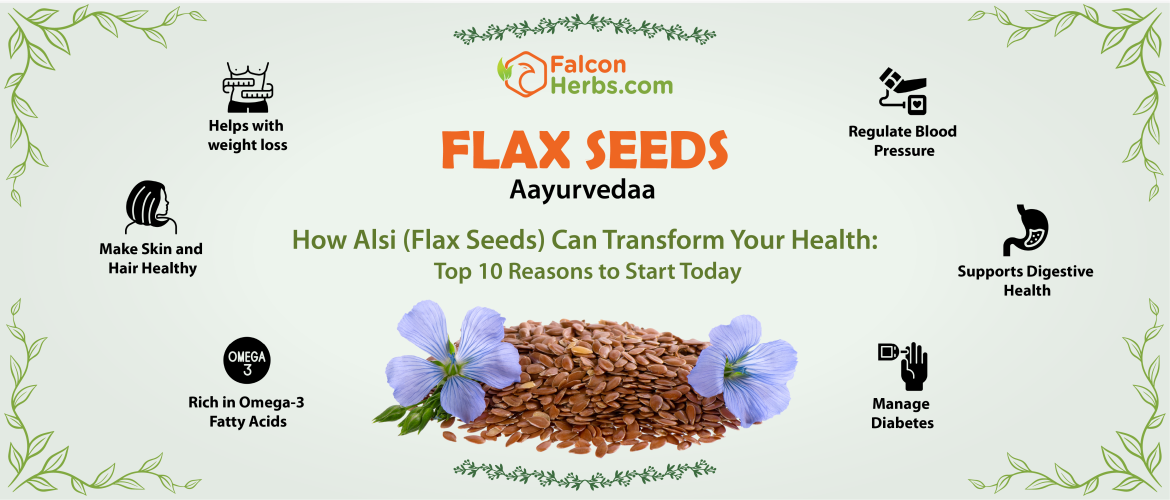
Table of Contents
Introduction
Have you ever wondered how a tiny seed could pack such a powerful punch when it comes to health benefits? Welcome to the world of Alsi, commonly known as flax seeds. These small but mighty seeds are a powerhouse of nutrients and have been celebrated for their health benefits for centuries. Today, we’re diving deep into why you should consider adding flax seeds to your diet and how they can transform your health in more ways than one.
What Are Flax Seeds?
Flax seeds, also known as Linum usitatissimum, are tiny, golden or brown seeds that originate from the flax plant. These seeds have been cultivated for thousands of years and are renowned for their rich nutritional profile. A single tablespoon of ground seeds contains a wealth of essential nutrients, including fiber, protein, omega-3 fatty acids, and various vitamins and minerals.
The Historical Significance of Flax Seeds
Flax seeds have a storied history that dates back to ancient civilizations. The Egyptians, Greeks, and Romans all recognized the value of these seeds, using them for everything from culinary purposes to medicinal remedies. In modern times, seeds have seen a resurgence in popularity as more people become aware of their incredible health benefits.
Top 10 Health Benefits of Flax Seeds
1. Rich Source of Omega-3 Fatty Acids
Omega-3 fatty acids are essential fats that our bodies cannot produce on their own. seeds are one of the best plant-based sources of alpha-linolenic acid (ALA), a type of omega-3. These fatty acids are crucial for heart health, reducing inflammation, and supporting brain function. Compared to other plant sources, Seeds offer a higher concentration of these beneficial fats, making them an excellent addition to your diet.
2. High in Dietary Fiber
Fiber is essential for maintaining a healthy digestive system, and Seeds are an excellent source of both soluble and insoluble fiber. This dual action helps regulate bowel movements, prevent constipation, and support overall digestive health. Additionally, the high fiber content can help you feel fuller for longer, aiding in weight management.
3. Packed with Lignans
Lignans are unique compounds found in high concentrations in flax seeds. These phytoestrogens have antioxidant properties that can help reduce the risk of cancer and improve overall health. Studies have shown that lignans can lower the risk of breast cancer, particularly in postmenopausal women.
4. Excellent Source of Plant-Based Protein
For those following a vegetarian or vegan diet, flax seeds provide a valuable source of plant-based protein. Protein is vital for building and repairing tissues, making enzymes and hormones, and supporting immune function. Incorporating flax seeds into your diet can help ensure you meet your daily protein needs.
5. Supports Digestive Health
Seeds are known to promote digestive health by acting as a natural laxative and reducing inflammation in the digestive tract. The soluble fiber in Seeds forms a gel-like substance in the stomach, which slows digestion and can help regulate blood sugar levels. Additionally, flax seeds have prebiotic properties, which means they feed the beneficial bacteria in your gut.
6. Helps Lower Cholesterol Levels
Regular consumption of Seeds has been linked to lower levels of LDL cholesterol, often referred to as “bad” cholesterol. The soluble fiber in Seeds helps bind cholesterol in the digestive system, preventing it from being absorbed into the bloodstream. This, in turn, can reduce the risk of heart disease and stroke.
7. Aids in Blood Sugar Control
Seeds can play a role in managing blood sugar levels, making them particularly beneficial for people with diabetes. The fiber content helps slow the absorption of sugar into the bloodstream, preventing spikes in blood sugar levels. This can lead to better glycemic control and reduced risk of type 2 diabetes.
8. Anti-Inflammatory Properties
The omega-3 fatty acids in Seeds have potent anti-inflammatory effects. Chronic inflammation is linked to numerous health conditions, including heart disease, arthritis, and certain cancers. By incorporating Seeds into your diet, you can help reduce inflammation and lower the risk of these chronic diseases.
9. Beneficial for Skin and Hair Health
Seeds are a rich source of vitamins and minerals that are essential for maintaining healthy skin and hair. The omega-3 fatty acids help keep your skin hydrated and reduce the appearance of fine lines and wrinkles. Additionally, the antioxidants in Seeds can help protect your skin from damage caused by free radicals. For hair health, the nutrients in Seeds can promote stronger, shinier hair and reduce hair loss.
10. May Help in Weight Management
Seeds can be a valuable ally in your weight loss journey. The high fiber content helps you feel fuller for longer, reducing the likelihood of overeating. Additionally, the protein in seeds can help maintain muscle mass during weight loss, ensuring you lose fat rather than muscle.
How to Incorporate Flax Seeds into Your Diet
Seeds can be consumed in various forms, including whole, ground, and as flaxseed oil. Ground seeds are often recommended because they are easier to digest and allow your body to absorb more nutrients. You can sprinkle ground seeds on yogurt, oatmeal, or salads, or blend them into smoothies. Flaxseed oil can be used in salad dressings or drizzled over vegetables.
Potential Side Effects and Precautions
While flax seeds offer numerous health benefits, it’s essential to consume them in moderation. Excessive intake can lead to digestive issues, such as bloating and gas. Additionally, flax seeds contain compounds called cyanogenic glycosides, which can be toxic in large amounts. Pregnant and breastfeeding women should consult their healthcare provider before adding flax seeds to their diet.
Conclusion
Flax seeds are a nutritional powerhouse that can offer numerous health benefits, from improving heart health to supporting digestion and aiding in weight management. By incorporating these tiny seeds into your daily routine, you can take a significant step towards better health and well-being. So why wait? Start reaping the benefits of flax seeds today!
FAQs
How much flax seeds should I eat daily?
It’s generally recommended to consume 1-2 tablespoons of ground flax seeds per day to reap the health benefits without experiencing adverse effects.
Can flax seeds help with weight loss?
Yes, flax seeds can aid in weight loss due to their high fiber content, which helps you feel full and reduces overall calorie intake.
Are there any side effects of consuming flax seeds?
While flax seeds are generally safe, consuming them in large amounts can lead to digestive issues like bloating and gas. It’s best to start with a small amount and gradually increase your intake.
How do flax seeds benefit skin health?
The omega-3 fatty acids and antioxidants in flax seeds help keep your skin hydrated, reduce inflammation, and protect against damage from free radicals, leading to healthier, more radiant skin.
Can I eat flax seeds raw?
Yes, you can eat flax seeds raw, but it’s often better to consume them ground to ensure your body can absorb the nutrients effectively
Alsi Flax Seeds 200 gm -A great source of fiber to promote a healthy weight loss
₹207.00
Type: Ayurvedic MFG: Jun 4, 2023 LIFE: 36 months

